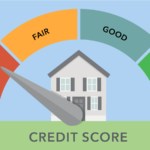More and more people every day are switching to digital forms, internet, as well as to online banking.
As youngsters may be familiar with frauds and scams existing online, elderly people tend to keep their information open and accessible which makes them a perfect target for scammers.
Being young, however, doesn’t keep you safe – the number of websites and places we write our information is huge so, in that context, everyone is vulnerable.
If you’re thinking you’re careful enough, think twice. Just as easy as it is for a bank employee to mis-sell you packaged bank account without you even noticing, even easier is for a hacker to crash the system.
What kind of fraud exists on the internet?
Hackers know what they are doing.
There are many frauds and scams to look out for which they use to get to your personal information, especially the ones connected to your bank account and credit cards.
Phishing
Tools for conducting this kind of fraud are emails, text messages and websites. On the first hence the sender looks ordinary and legit but that’s the point, isn’t it? Check the sender!
Deposit scams
Also received by emails, deposit scams include a request for removing a large amount of money from your bank account in exchange for a fee they’re going to pay you.
Cold calling
In this scam, a caller will pretend to be an employee from your bank.
He or she will probably state that there are some issues with your bank account and/or that it has been compromised.
Finally, to resolve the imaginary problem, the caller will require your personal information regarding your credit card, PIN, or other information about the bank account.
What can you do to stay protected?
As dangerous as the internet is, you can still do some steps to make your online banking accounts safe.
Update
Keep up with software and apps updates!
Whichever device you’re using for your online banking, make sure you update on time. This way you’ll protect yourself, as one of the easiest ways to hack is through an old software.
Two-factor authentication
As much as banks invest in customer data security, hackers often find their way to crash the system.
Make sure your online banking has 2FA – two-factor authentication, rather than just one (usually password that’s easy to discover). This way you’ll add a second layer of security verification which makes it that much harder to break into.
Credit report
To be able to report any problem that may have occurred, check your credit report daily.
If you find yourself in a situation where you’re paying your bank something you don’t know what it is for, payment protection insurance, for instance, you would call them, right?
Apply this thinking here, too! If you notice some unusual activities, as well as access to your personal data by someone else, call the bank!
Unique passwords
This may sound easy but is very important. The most common passwords are still a variation of 123456789 combinations.
Never use your personal information, name, date of birth or PIN as your password to online banking!








